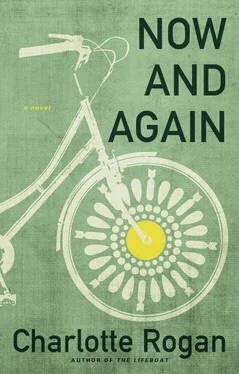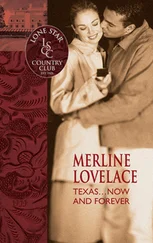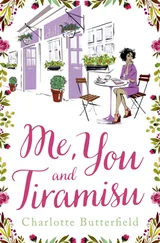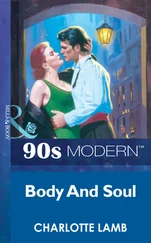“Tell me, then. What would a good man do if he knew what I know? Would he make that knowledge public even if it ended his career, or would he close his eyes and continue to help his patients the best he can?”
Dolly was certain the doctor was talking about the report on munitions safety he had mentioned several weeks before. She took a deep breath and asked, “Was it the report on birth defects and munitions safety that was altered?”
The doctor looked startled, as if he hadn’t meant to speak his thoughts aloud. “Oh, that,” he said. “Whatever caused the birth defects, it wasn’t the munitions. The revised report was absolutely clear on that.”
“The revised report,” said Dolly carefully. “What did the original say?”
But the window was closed now, closed and shuttered. And then the doctor was glancing at his watch and asking about the last patient — wherever had she gotten to? Did she think he had all night? While they waited for her to arrive, he talked pompously about the heroic things he had done, the influential people he knew, the exotic places he had traveled to, the new car he was going to buy. “So I really don’t have time to wait,” he said.
“Doctor,” whispered Dolly. “Do you have copies of both reports?”
“Do I have copies?” asked the doctor absently. His eyes had lost focus, and Dolly couldn’t tell if he had been drinking again or if he was merely lost in thought.
“Yes, of the two reports.”
The storm was turning the orange clay of the parking lot into an orange pond. The owner of the building had dumped a load of pea gravel in a corner of the lot, but no one had ever come to spread it, so it sat like a miniature mountain near the rusting trash receptacle. Dolly liked to imagine the improvements she would make if she were the owner of the facility: curtains at the windows instead of broken mini blinds, pots of geraniums at the entrance, a fresh coat of paint on the flaking stucco, and in the waiting room, a basket of magazines and comfortable upholstery rather than metal folding chairs like the one the second-to-last patient was sitting on while she waited for someone to pick her up.
“Do you have a ride?” asked Dolly.
“Yes,” said the woman. “We got the truck fitted out with hand controls. Frankie’s still getting used to them, so he says I’m not to worry if he’s a little late.”
“I guess she’s not coming,” Dolly said when fifteen minutes had passed and the last patient had failed to arrive.
The doctor put on his coat. “Who would have thought?” he muttered. “Who in tarnation would have thought?”
“What’s done in the dark always comes to the light,” said Dolly.
“Unless it doesn’t,” said the doctor.
“What about if we give it a teensy push?”
“No, no. I can’t afford to ruffle feathers,” said the doctor. “That would be disastrous.”
“But I can,” said Dolly. “What if I were the one…”
But the doctor was pulling a rain hat over his ears and she couldn’t tell if he was listening or not.
After he left, Dolly made her way through the rooms locking cabinets and making sure the bathroom was presentable. She had just finished, all except the lights, when a rusty pickup pulled into the parking lot and honked, the beams of its headlamps illuminating the heavy raindrops and the gravel pile. The woman who had had the miscarriage jumped up and ran out the door, slamming it behind her and holding a paper grocery sack over her head to protect her from the rain. Just when she reached the passenger-side door, the truck lurched forward, causing her to fall to her knees in a puddle.
Dolly opened the door and called out, “Are you all right?”
“It’s not Frankie’s fault!” the woman called back as she scrambled to her feet. “It’s the hand controls! They can be a little bit tricky at first!” The gears ground and caught. Then the truck shuddered backward until it was clear of the puddle, and she opened the door and climbed inside.
3.3 Will
The A students sat up front, their faces smug with knowledge. After school, they streamed out the doors to the waiting minivans, the waxed and buffed high-riders, the sleek four-doors and rusted rattletraps, taking their secrets with them while Will was left with the mystery: “Were the ghosts in The Turn of the Screw real or not? Explain.”
He had a 50 percent chance of getting the first part of the question right, but how could he explain what he did not know? And how did it make sense to ask if something in a made-up story was real, especially when that something couldn’t be real in reality. At first he thought it was a trick question, and after hesitating, he had written “No,” comforted that the letters, scratched out in soft pencil, were easily erased — something he quickly did. “Yes,” he then wrote. But “yes” was an answer he couldn’t explain, while “no” had years of experience to back it up, not to mention Sunday school instruction if he chose to get into that, a tactic that went over well with most of his teachers, but somehow not with Mr. Quick. Besides, the Y looked shaky, about to topple over on its stick, so he erased “Yes” and replaced it with the more solidly grounded “No,” which he made as bold and as black as graphite and his wavering conviction could make it.
“I’ll show you what a nice guy I am and give you ten more minutes,” Mr. Quick announced to Will and the three other students who had only slouched more deeply in their chairs and clutched their pens and pencils more tightly when the dismissal bell sounded.
The classroom window looked out onto the courtyard, where a line of cars snaked and waited for the students to emerge. In the distance, a stand of budding apple trees stretched their branches to the sun, and beyond the apple trees, the gentle slope to the ball field where Will’s team gathered every afternoon. If he stayed to finish the quiz, he would be late for practice and jeopardize his starting position, but if he didn’t stay, he’d get a failing grade.
Will scribbled the word “corruption,” which he knew was a euphemism for sex only because Mr. Quick had pointed it out to the class. He wrote quickly, finishing with a statement about how it was fear that was destructive, not corruption or ghosts. Then he hurried to the locker room and changed into his practice uniform before sprinting down the hill to the ball field.
“Hustle up,” called the coach, and after that, Will could breathe a little easier.
Because he’d been late, Will had to run extra laps, so it was after six when he walked up the hill to the courtyard. Most afternoons he could catch a ride with a teammate, but at that late hour the turnaround was deserted, leaving him to walk the two miles home. We should have cell phones, Will thought, but he knew it was hard enough to make ends meet without wasting money on things they didn’t need.
It wasn’t until he was passing the Car Mart that he wished he’d put down “Yes” for the first part of the answer. Even if ghosts didn’t exist, the idea of them did, and besides, the word “ghosts” could refer to inner demons as well as outer ones. There were a lot of unexplained things in the world, so maybe the story was about how things were what you thought they were and what they really were didn’t come into it much.
Was it really wrong to think about sex multiple times a day? Was it really wrong to imagine Tula with no clothes on even though he liked her just as much when she was wrapped up from head to toe in tights and sweaters? Was it wrong to steal food if you were starving? Some people were forced into lives of crime by the way the world was — the way it really was. And then he decided that this whole line of inquiry was his mother talking — she had gotten inside his head somehow and was controlling it the way she had wanted to control Will and Lyle until she decided to go out and control the world.
Читать дальше












